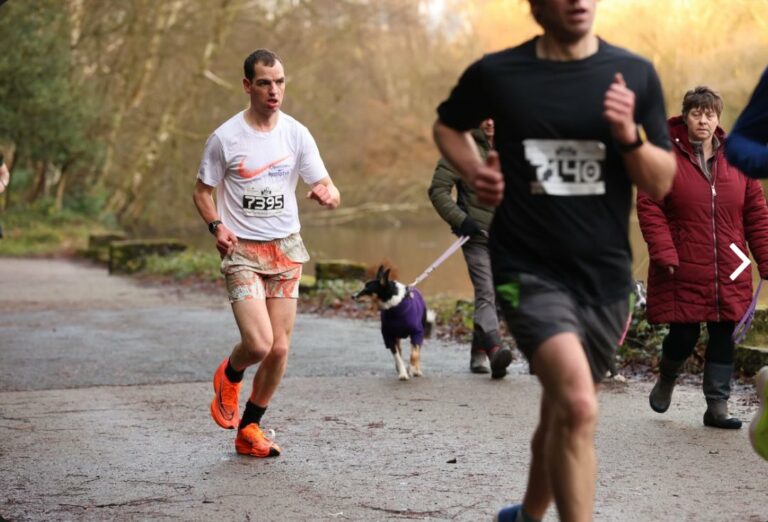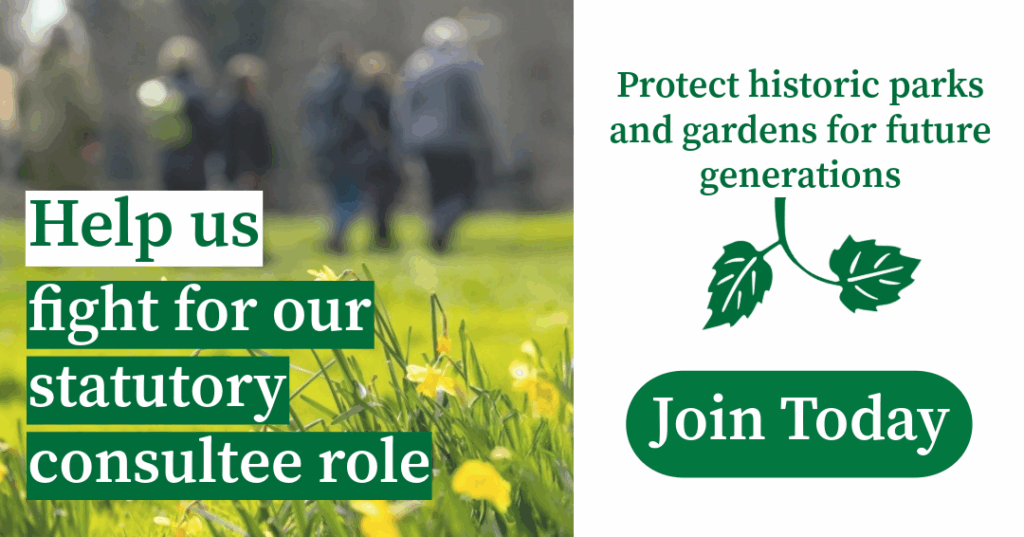
In April 2025, a group of 5 dedicated runners will lace up their shoes and take on the iconic London Marathon, all in support of the Gardens Trust. Their passion and determination will not only carry them through 26.2 miles but also help preserve and protect the historic gardens and parks we all cherish.
Meet some of our incredible runners and discover why they’ve chosen to go the extra mile for our cause.
Linden Groves
I’m Linden from London and I love all things historic parks and gardens! I am currently the Head of Ops & Strategy for the Gardens Trust, which is surely one of the best jobs possible. My degree was in English Literature and my first job was working on a magazine which happened to be about historic gardens (Historic Gardens Review) – I remember on my first day there asking what a parterre was!
What are you hoping to raise awareness of during your training for the London Marathon? Is there something you wish everyone knew about historic parks and gardens or the Gardens Trust?
I would like everyone to understand that historic parks and gardens are a bigger part of their lives than they realise – those places that most of us walk or even run through on a weekly basis are actually at the heart of our national heritage. They make us healthier; they help the planet do better, and they bring us together through our shared experiences.
Ruth Holmes
I’m Ruth Lin Wong Holmes, a landscape architect living and working in London. I work at Queen Elizabeth Olympic Park and have been involved in caring for designed landscapes since 2005. I don’t like running but I love urban greenspaces – especially old cemeteries!
We’re hoping the London Marathon will help us to raise money to continue our work protecting historic designed landscapes. As a landscape architect, what do you think are some of the most pressing threats to parks and gardens currently?
From a Landscape Architect’s point of view, parks and gardens, particularly in urban areas, are under threat of development. This can range from areas of land being sold off to construct buildings, which removes much needed open equitable space for local people. Or overshadowing by tall high-density development, that in most cases relies on that park or garden to provide amenity space for their occupants (residents, businesses, visitors and community). Historic urban parks and gardens were established as a vital part of civil society and to benefit everyone, not just the privileged, as it made moral and economic sense to do so.
The Gardens Trust as the umbrella organisation that comments on future developments so plays a vital role in keeping these spaces open to the public for the benefit of our country.
These important and significant spaces are contested spaces without sufficient funding to manage and maintain them to a quality that keeps them feeling safe and welcoming. Government legislation such as Biodiversity Net Gain, or at a metropolitan level, the Urban Greening Factor in the London Plan, helps to safeguard and support the network of green infrastructure which is needed in our cities. The historic gardens and parks are usually more established and so support people’s ‘access to nature’ with an abundance of wildlife their habitats provide. They are places for fun, enjoyment, delight and communal value. Unfortunately, value to health and wellbeing and cost to the planet are rarely found on the calculations of viability or government statistics about wealth.
Ruth Tufnell
I am a 60-year-old (in February) art teacher from Oxfordshire working in an all-boys independent school, and I am very much looking forward to running the 2025 London Marathon in support of The Gardens Trust! I have run in three marathons in the last five years (none of which were very fast), but I enjoy fundraising for important causes and being part of amazing running events.
By participating and fundraising at this iconic event, I aim to help the Gardens Trust charity in its excellent and dedicated work protecting and conserving historic parks, gardens, and designed landscapes in the UK for several reasons.
At the Gardens Trust we celebrate the history of parks and gardens but deeply appreciate their vital important to us in the present too. What do you think are some of the key benefits they bring to us and our planet today?
Firstly, the landscapes and gardens the Gardens Trust helps to support provide green spaces, help improve air quality and support biodiversity, all of which are important for the environment and can help mitigate the effects of climate change.
Secondly, the Trust runs excellent educational projects (a passion of mine) that help raise awareness about the importance of gardens and landscapes. Therefore, I hope to play a small part in helping fund programmes that educate and inspire a new generation of gardeners and landscape architects.
Thirdly, like making art, gardens and green spaces contribute to individuals’ and communities’ mental and physical well-being as they offer relaxation, recreation, and social interaction opportunities. Supporting The Gardens Trust helps ensure that these spaces remain accessible and well-maintained for everyone to enjoy. Monty Don has spoken eloquently of the importance of gardening for his mental health and battles with depression.
Finally, such gardens and landscapes are important to the UK’s heritage and cultural identity. By raising funds for The Gardens Trust, I can go a very small way in promoting and protecting the cultural significance of these landscapes and ensure that they are not lost to neglect or development.
I hope my participation in the London Marathon and my fund-raising beforehand will raise awareness for the Trust and its mission. By sharing my journey and the cause, I hope to inspire others to join me in preserving gardens and landscapes with all their myriad benefits, which everyone and future generations can enjoy.

Max Buttinger
I’m Max, and I’m a 45 year old runner living in Keswick in the Lake District. Prior to moving up here I worked as a solicitor in London.
I’ve always enjoyed walking, history and beautiful landscapes. I started running about 15 years ago because I wanted to see more of what I love. The faster I ran, the more I could see! I seek out historic parks and gardens to help motivate my running, be it park runs at Muncaster Castle in Cumbria or solo cross country runs on Sunday mornings in Knole Park in Kent. There is a certain peace that comes from knowing you are running in a landscape used and managed by people for hundreds of years, and that inner peace is a large part of why I have become an experienced all round runner able to compete in marathons.

Gary Spreadbury
I’m a head gardener based in West London and I want more people to know and learn about green spaces, biodiversity and the people helping to maintain them. I would love to inspire the next generation of gardeners and believe that teaching gardening from a young age is a musts. Likewise I want to help raise awareness of the support needed for retired gardeners or those with long term injuries sustained their careers.
How are you preparing for the Marathon?
I recently did my first official week of marathon training, building on my existing fitness base of running approx 30 miles per week in 2024.
Last year I completed the Surrey Half Marathon as well as the Sutton Park Half Marathon in Birmingham in 1:31:18. Birmingham was a very hilly race and I was pleased to finish in 15th place!
I also undertook Hill training with a club outside Richmond park in London and am looking forward to upcoming runs in 2025. I have a 10k race in Feb, another half marathon in March and possibly one more half marathon in April. I’m getting on with my training plan and very much looking forward to representing the Gardens Trust.





